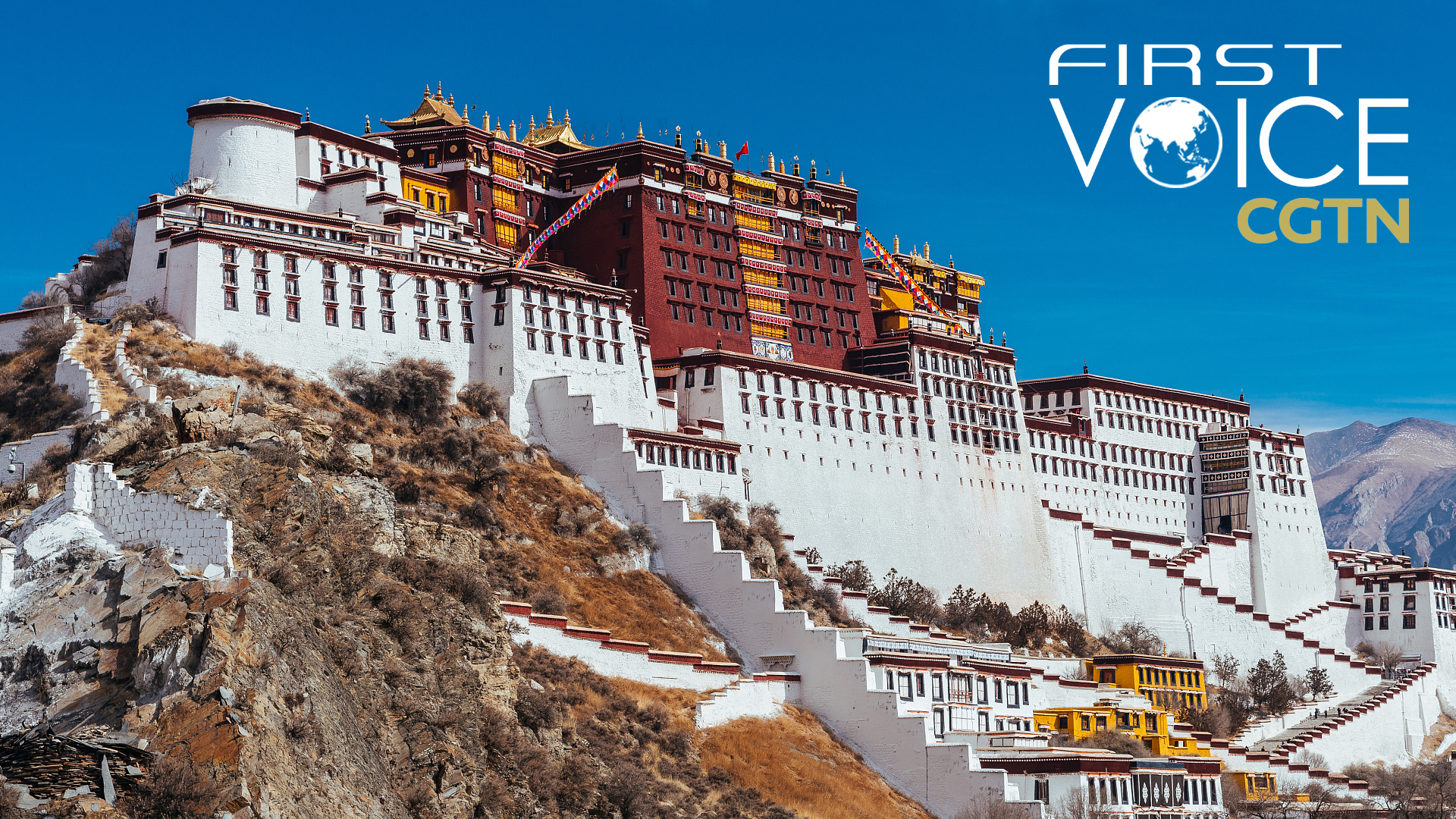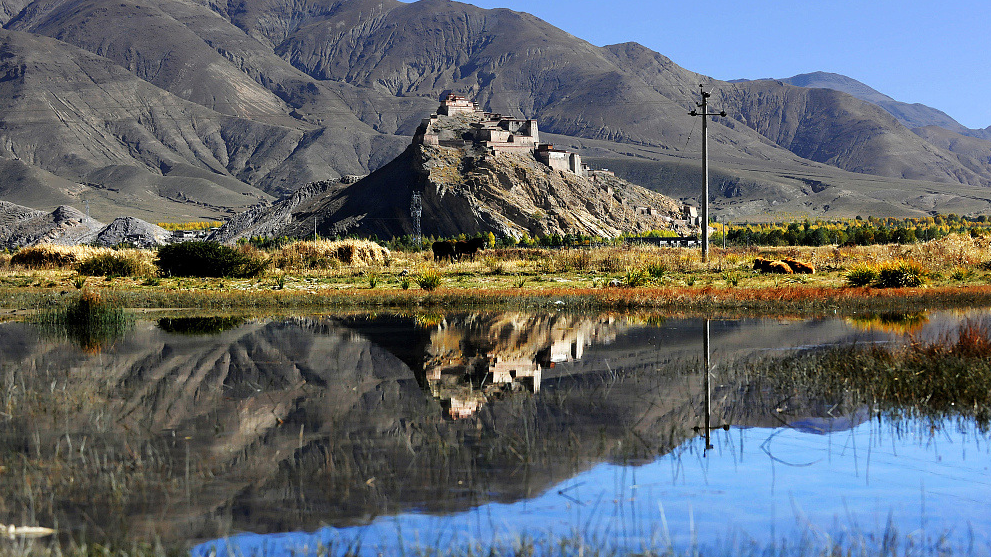
Editor's note: CGTN's First Voice provides instant commentary on breaking stories. The daily column clarifies emerging issues and better defines the news agenda, offering a Chinese perspective on the latest global events.
This year marks the 70th anniversary of the peaceful liberation of Tibet, marking the occasion when the People's Liberation Army, as part of the process of unifying China, entered the region and ended the feudal serfdom that had ruled the region for centuries.
There are some people in the West who see Tibet as another region ripe to promote separatism in China, and there is a long winded and established history of doing so. Despite the fact that the region is an internationally recognized part of China, there has been for over 100 years a constant barrage of actions designed to stir up trouble and undermine Chinese sovereignty.
In 1903, during the waning years of the Qing Dynasty, the British Empire invaded and occupied Tibet in what is known as the "British expedition" to the region. They sought to advance their influence from the Indian subcontinent, define China's border to their own preferences and also promote separatists as part of their broader campaign to exploit the country. Likewise, there is a long-documented history of CIA meddling in the region in the bid to stir up unrest and division.
However, the facts are these: Tibet is a better place after its liberation, in every aspect conceivable. This has been a choice between a landlocked and impoverished mountain region ruled by feudal lords, or being interconnected with the economic powerhouse of the world. It is frequently ignored and overlooked for ideological purposes by the media that the peaceful liberation of Tibet was an enormous boost for human rights and equality in closing down a horrific and illegitimate serf system that committed many crimes against its population.
In 2009, an article was published in The Guardian by Sorrel Neuss titled "What we don't hear about Tibet," outlining how ideological bias against China and the false perception of a "romanticized Tibet" in the Western imagination clouds out a "society that was far more brutal than the vision."
Before the liberation, Neuss' states 98 percent of Tibet's population was "enslaved in serfdom." The rulers of Tibet were not peaceful, pacifist leaders but "high-ranking lamas and secular landowners" who "imposed crippling taxes, forced boys into monastic slavery and pilfered most of the country's wealth – torturing disobedient serfs by gouging out their eyes or severing their hamstrings."
The Drepung monastery for one, is described in an academic paper by Michael Parenti as "one of the biggest landowners in the world, with its 185 manors, 25,000 serfs, 300 great pastures, and 16,000 herdsmen." Pre-Liberation Tibet was not a paradise, but a hellish and backwards place.

Scenery of Lhasa City, capital of Tibet Autonomous Region, southwest China. /VCG
Scenery of Lhasa City, capital of Tibet Autonomous Region, southwest China. /VCG
As quoted in the Guardian piece, Tashi Tsering, an ethnic Tibetan professor and author at Lhasa University, states that Tibetans see themselves better off after its liberation in 1951 than before. He testifies of having experienced sexual abuse and beating. Having left Tibet and returned in 1964, he strongly believes Mao Zedong liberated the region.
The peaceful liberation of the region not only ended the unequal system of serfdom, but also transformed it economically through ending the slavery-imposed taxes, creating new infrastructure including the region's first hospitals and schools, and providing clean water, which in the process has more than doubled local people's life expectancy.
Even now, the Chinese central government continues to transform Tibet's economic horizons through investment and development. Recently the region's first bullet train route, connecting Lhasa to Nyingchi was opened. The 435-kilometer-long railway drastically reduces travel time within the region and helps navigate through its mountainous and often obstructive terrain.
Through its liberation, Tibet has achieved a prosperous, stable and splendid future. This is not a question about religion, but a commitment to ending a political system subjecting its people to slavery and backwardness.
Today, there are some countries wanting to turn back the clock and promote separatism, arguing that this brutal and savage past is somehow preferable to the unity and equality of the Chinese nation. These voices are whitewashing history out of ideological ends. The peaceful liberation of Tibet stands as one of the greatest achievements of the Chinese revolution, which collectively has brought power, hope and justice to the people.
(If you want to contribute and have specific expertise, please contact us at opinions@cgtn.com.)

